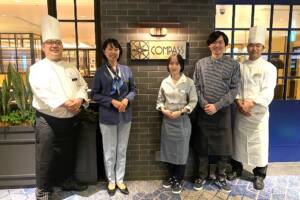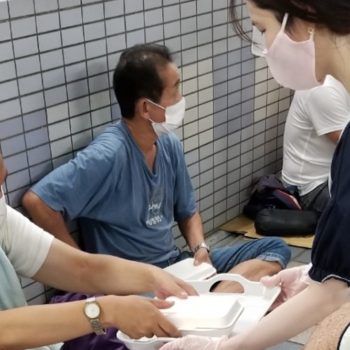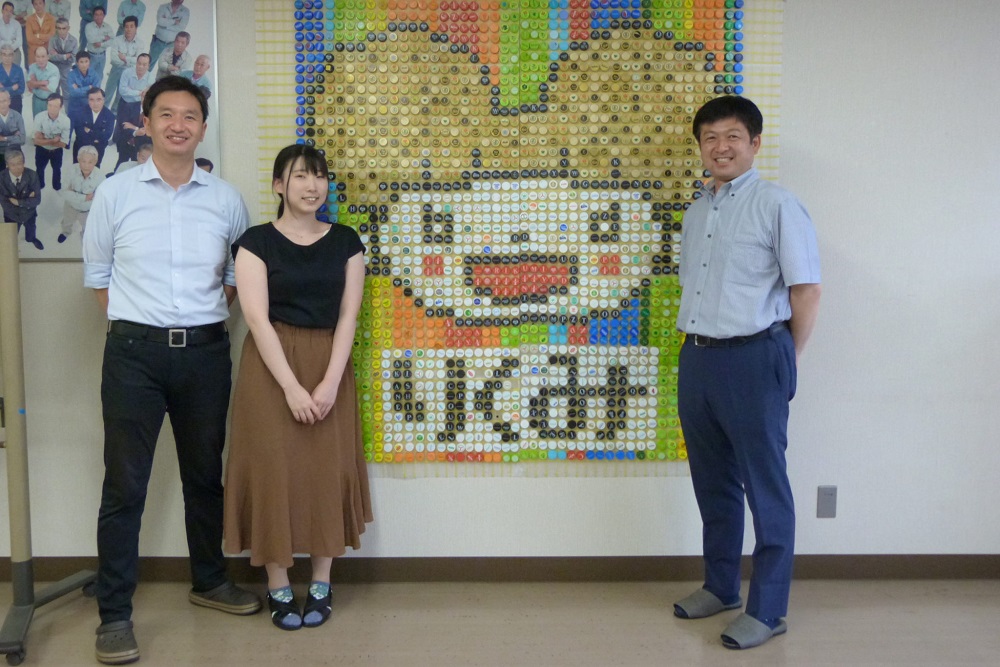
Recycling business bridge the gap between administrations and citizens: Yokohama City Resource Recycling Business Cooperative
- On 2020/10/2
Have you ever heard of the word “Earth Overshoot Day?” It is a day that marks the date when humanity’s demand for ecological resources and services in a given year exceeds nature’s budget in that year. Unfortunately, Earth Overshoot Day has been getting earlier year by year. It is time we had to take action to stop the date comes earlier.
Yokohama City Resource Recycling Business Cooperative is now working on to push the Overshoot Day back by their recycling business. We are going to take you a look at their action.
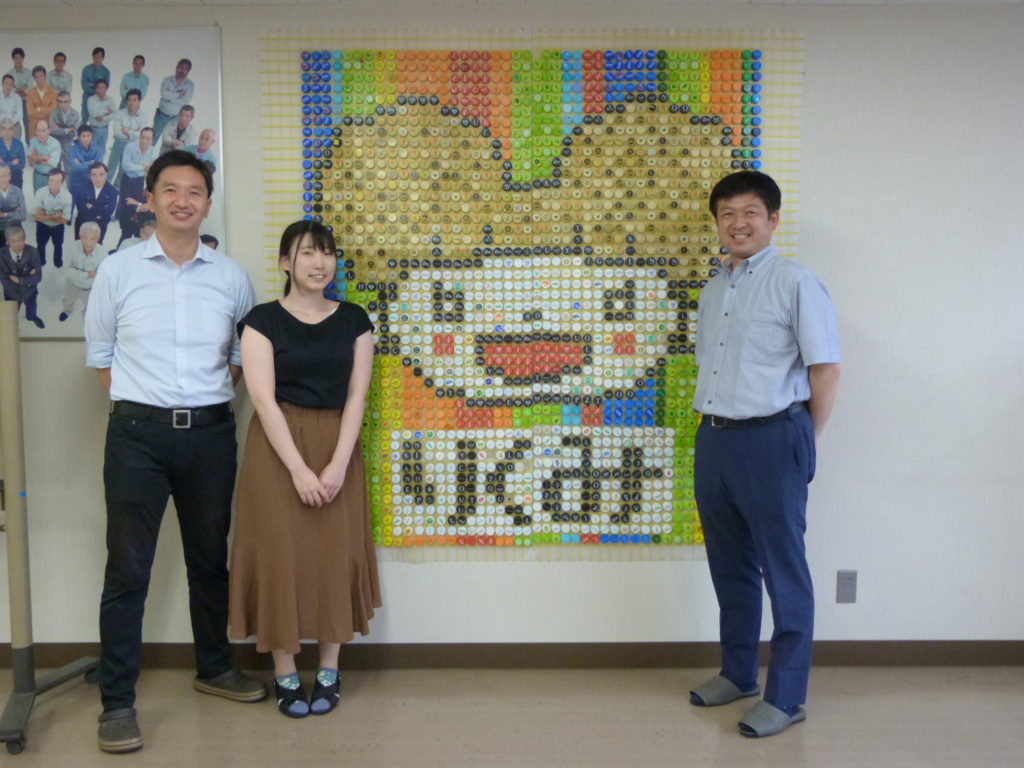
──Could you please tell us about what Yokohama City Resource Recycling Business Cooperative does?
Mr. Kurihara: We are mainly engaged in the waste collection service industry specialized in paper, iron, glass, and cloth. These days, the amount of waste is becoming enormous, and it is one of the severe problems in the world. Our business attempts to recycle and reuse as many products as possible and also reduce waste in Yokohama.
The Yokohama reuse bin project
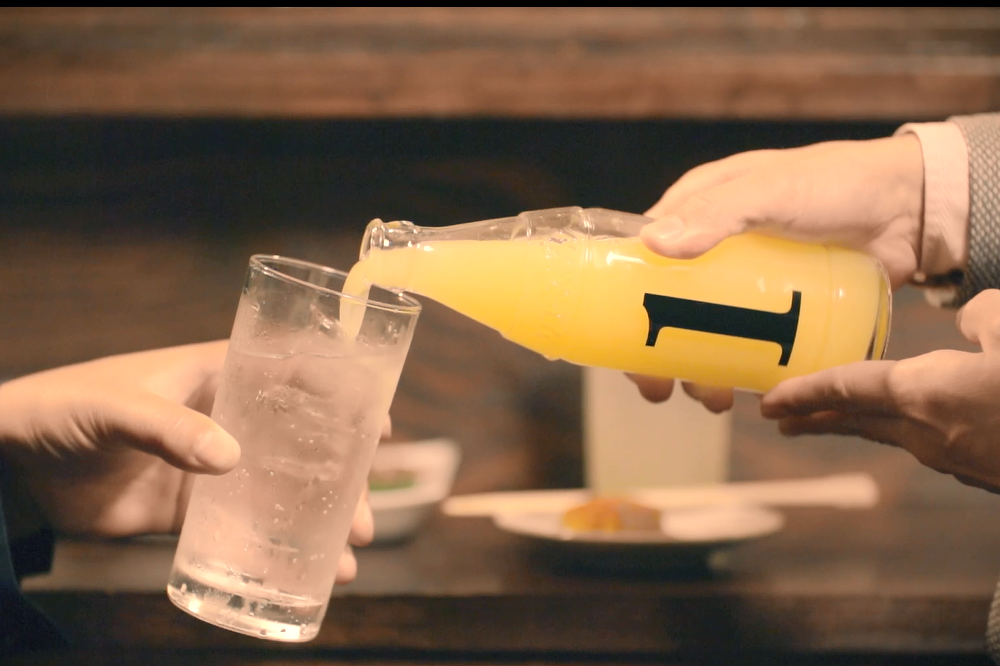
──Please tell us about the Yokohama reuse bin project? *bin means glass bottle in Japanese
Ms. Kato: The Yokohama reuse bin project is to produce reusable glass bottles in Yokohama. We aim to reduce the amount of plastic and other kinds of non-biodegradable materials. The concepts of the project are to encourage local consumption and to accelerate the local circular economy.
──There are recyclable bottles as well. What is the difference between recyclable bottles and your reusable bottles?
Ms. Kato: There are two types of glass bottles in the current distribution. The glass bottles you usually see at a market are what we call one-way bottles. One way bottles are a type of recyclable glass bottles. After being collected, they are sorted out by colors and are cracked and melted. Then, they are reformed into brand new glass bottles. On the other hand, there is a different type of glass bottles called reusable bottles. Reusable bottles used to be more common over one-way bottles. The difference is that reusable bottles do not need to be sorted out, melted down, and reformed into new bottles. They can be reused right after rinsing and replacing the beverage in them. This simple process reusable bottles go through much helps reduce energy consumption.
── Is there anything that makes the Yokohama reuse bin project unique?
Ms. Kato: Our reusable glass bottles are designed only for the project. The point of the design is that it looks out of style. The essential process about the circulation of reusable bottles is how to collect them properly. We intend that people may want to return the glass as soon as possible if the design is not so classy.
Besides the design of the bottles, we also try to design the circulation system of them too. Yokohama reusable glass bottles are processed every step inside Yokohama, and it also helps reduce the amount of CO2 emissions.
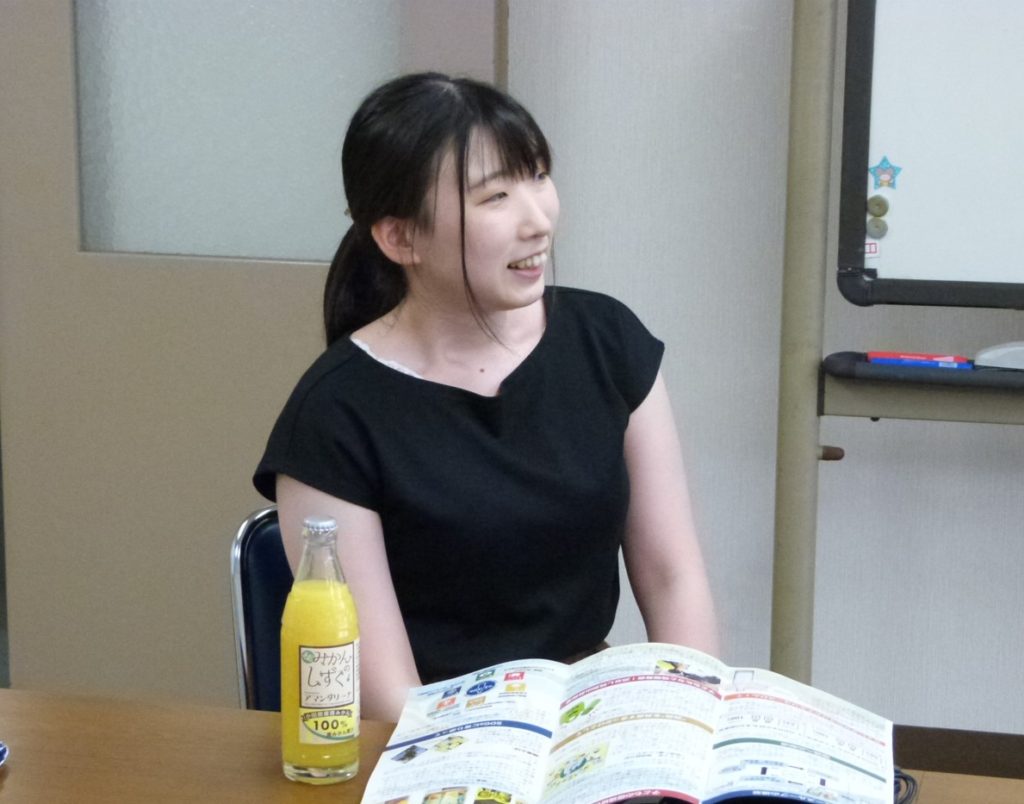
Ms. Kato
──As you mentioned, reusable bottles are not used regularly anymore, but why do you focus on the Yokohama reuse bin project?
Ms. Kato: Compared with when the reusable bottle business was at its peak, the distribution has reduced by 30%. Thinking of that negative change, we thought we should have given up the project. However, there was an eco picture diary that said reusable bottles could be eco-friendly by closing the circulation of the distribution. That diary was submitted in 2014, and it fired us up. Since then, we have been trying to make a new “reuse bin” culture in Yokohama.
──Do you have any difficulty in the project?
Ms. Kato: I feel it is tough to spread the concept of the Yokohama reuse bin project to local people. At the beginning of the project, we made a one-week trial sale to sell Yokohama exclusive fruit juice in our reusable bottles at a grocery store. We explained the concept of the project that the bottles must be returned to reuse them. However, we only had 20% of the bottles back, and the rest of the bottles possibly went through the usual recycling process as well as one-way bottles did.
We have learned that many people think one-way bottles do not significantly impact the environment since they are recyclable. However, as a matter of fact, reusable bottles have a much lower environmental impact than one-way bottles do because of the simple reusing process.
We will keep doing the Yokohama reuse bin project and spread the positive aspects of our “reuse bin.”
──Do you produce beverages as well as bottles?
Ms. Kato: Yes, we do. For users of the reusable bottles, the key is whether the quality of the beverage is satisfying or not. They will not purchase the product if the drink does not taste good, even if they like our reusable bottle. We work together with local farmers and produce Yokohama fruit beverages exclusively for the Yokohama reuse bin project.
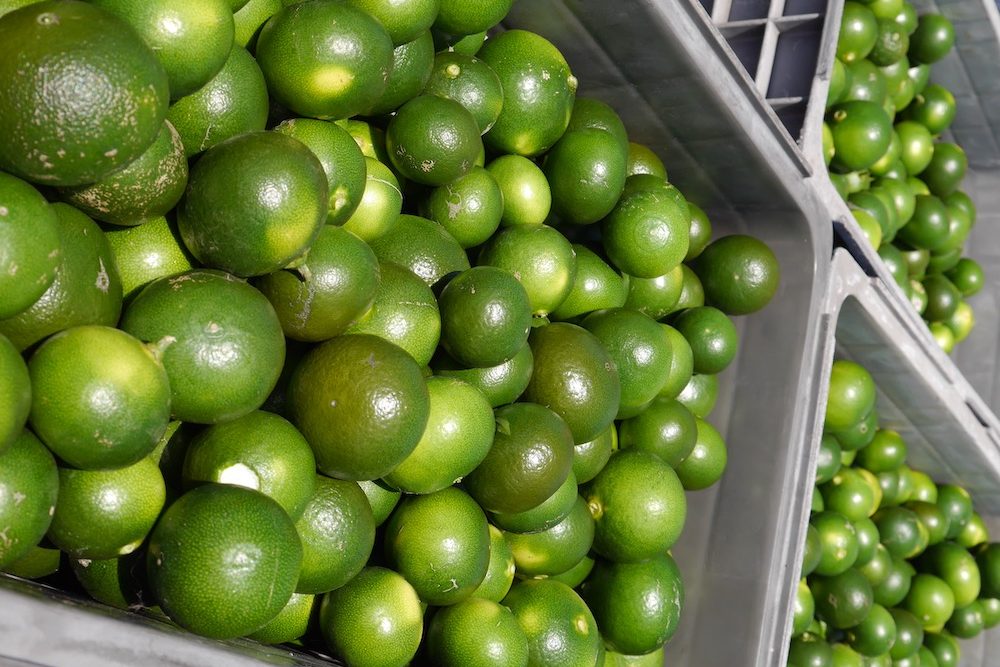
Yokohama made green tangerines
The eco picture diary project
──Could you please tell us about another project, “the eco picture diary project?”
Mr. Kurihara: The eco picture diary project encourages kids to be aware of environmental issues and think of its solutions by making their own posters. We had held the eco picture diary project every summer since 2000, although we would not be able to do it this year due to the concern for Covid-19.
The word “recycling” was not even so popular when we started the project, but our project has been significantly growing. In 2019, there were some entries from San Diego, the U.S., as well as from all over Japan. The jury is the partnership companies that are seeking the opportunity to interact with the local children.
We intend to make everyone, from children to adults, notice the seriousness of our environment. What would you say if children ask you about social problems or environmental issues? Would you ignore or give your knowledge to them? We believe most adults would not ignore them, but they would think and learn together with children. This is one of the good effects of the eco picture diary project.
──What do you do with all the picture diaries after you receive them?
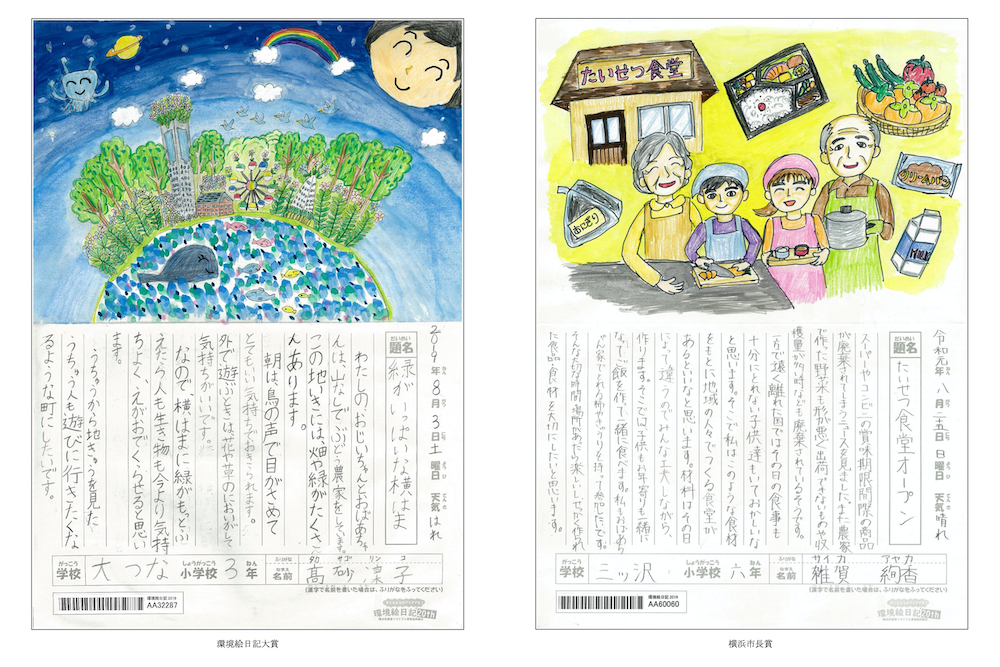
eco pictures
Mr. Kurihara: The prize exhibition is held every December in Yokohama Minato Ohsanbashi Hall. Panel discussion by past winners is one of the programs at the exhibition. Other environmental artworks that were drawn by the children in Yokohama are showcased together as well.
We are so proud that the children who participated in the eco picture diary project grew up and became adults who have high environmental awareness. I have heard some stories from people who became interested in environmental issues from the eco picture diary project’s experience.
Mr. Shimakawa: We like to interact with the children who submitted their diaries. We sometimes go to their school and award them in person. I am very sorry that we had to cancel the project this year because of the Covid-19. However, we are sure that we will continue holding the eco picture diary project in the future.
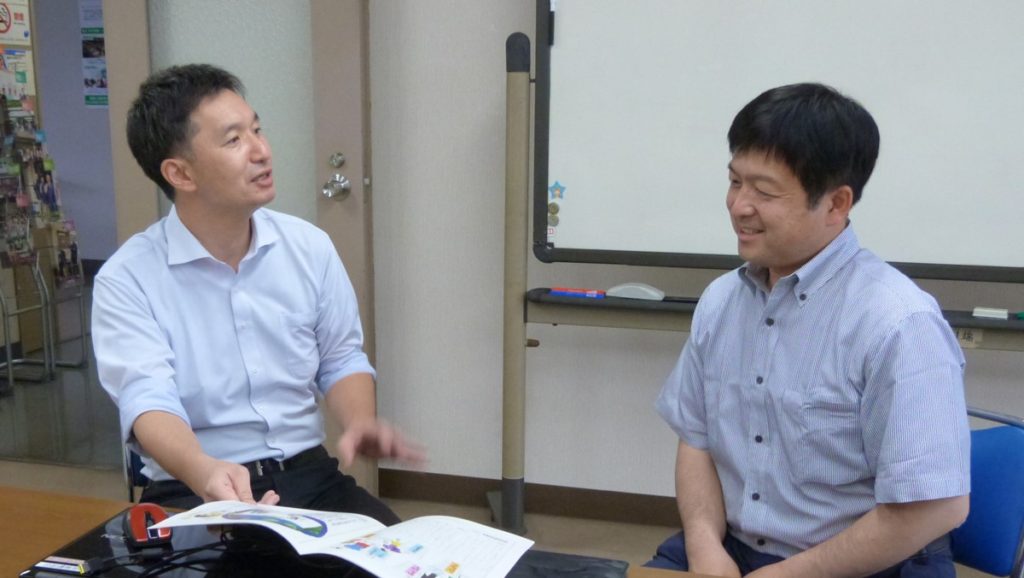
Mr. Shimakawa and Mr. Kurihara
For the post Covid-19 world
──How has the outbreak of Covid-10 affected your business?
Mr. Kurihara: The amount of household waste, especially paper and cloth, has drastically increased as more people self-quarantine at their home. Nevertheless, the global waste trade has stopped because of concern over the spread of the virus, and some of the companies closed their waste management business. This is becoming a severe problem that a large amount of waste is collected but has nowhere to go.
Speaking of industrial waste, on the other hand, the number of glass bottles decreased by nearly 90% because of the office and restaurant closure due to Covid-19. Not only did a lot of restaurants and bars close but a lot of parties, such as wedding parties and bachelor parties, were canceled too. Even after the state of emergency lifted, the amount of collected glass bottles is still less than half as the usual quantity.
Although the waste collection is one of the essential businesses in our society, we fear that we may go out of business if this deflation lasts long. Many workers have a fear of infection, as well. Even so, however, we feel appreciated when people give us positive compliments.
──What is your vision for a post-coronavirus world?
Mr. Kurihara: As a bridge between administrations and citizens, we aim to lead all the recycling activities in Yokohama. At the same time, we would like to focus on interacting and sharing information with local people. We primarily consider continuing the eco picture diary project. All the messages from children are precious for making society better. Our mission is to realize those beneficial messages. To carry the mission out, we will look ahead to a post-coronavirus society and continue working together with local companies.
【Reference】Recycle Design:Yokohama City Resource Recycling Business Cooperative (in Japanese)
【Reference】“The Eco Picture Diary” (in Japanese)
【Related post】The Eco Picture Diary
【Related post】Yokohama Reuse Bin Project


